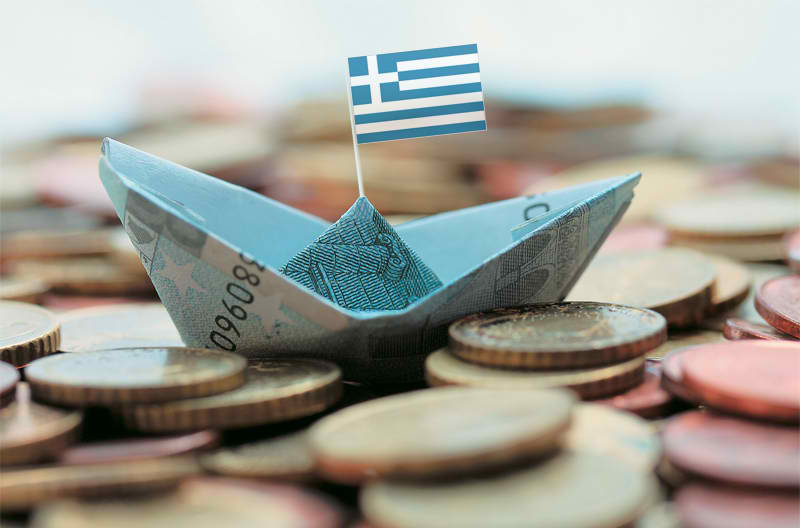
The goal is to achieve high and sustainable growth, stressed Finance Minister Christos Staikouras at the “Delphi Economic Forum”, in a special event focused on the Recovery Fund and the Future of Europe, while adding that “we have indications of a strong recovery in 2021”.
“The medium-term framework of fiscal strategy for the period 2022-2025 contains specific objectives and demonstrates how the country can achieve a strong recovery this year and sustainable development from 2022,” he said.
As he pointed out, “in 2021 the early indicators of the economy are encouraging for the goals set by the Greek government”. He pointed out, according to the APE, that the rate of contraction of the economy is much slower than the initial estimates of all, the country’s industry for the sixth consecutive month shows an increase, manufacturing is constantly increasing, the economic climate index has reached pre-coronary levels, Citizens’ deposits continue to rise, although the economy has opened up and consumption is improving.
Optimism
Also, as he mentioned, NPLs continue to decrease while last night the new bill was submitted with which the Hercules plan is extended in order to further reduce the volume of red loans.
“The country in the health crisis was upgraded by three rating agencies. In the money markets we borrow steadily at a negative interest rate. “In the capital markets, we borrow at historically low costs,” he added. “The credibility of the country, the credibility of the Greek society and the government has been greatly strengthened.”
“All the studies that have seen the light of day in the last two weeks are more optimistic than those of the Greek government. This makes us realistically optimistic that we will achieve the goals “, he noted and added that the government is not reviewing the goals “because there are uncertainties in the health field, in the tourist wave, in external factors, even in ELSTAT “, but maybe in September they will be reviewed for the better.
The Minister of Finance pointed out that maybe next Tuesday at Ecofin, the national recovery and resilience plan will be approved, along with the German plan. The release of the first 4 billion euros is expected in July or August, while it is estimated that the country will receive the first 8 billion euros in 2021.
Mr. Staikouras pointed out that the government will continue to support the affected part of society, while in the second half there will be 4.5 billion euros of support measures and spoke of a consistent and prudent fiscal policy, aiming at tax cuts and He stressed that the 12.7 billion euro loans of the Recovery Fund will be channeled to the real economy through loans.
Support measures and debt
“We have given 41 billion euros in the last two years. We collected these mainly from recourse to markets and a number of other initiatives. “For two years, what we collected in the country’s coffers, we gave to society, which is why, at the moment, the country’s cash resources are at 34-35 billion euros, which is the level before the health crisis”.
He also noted that debt sustainability has greatly improved and “will be further strengthened by high rates of economic growth and realistic primary surpluses.”
He also set the goals of the Greek government for the next two years, which are “to achieve strong fiscal growth rates from this year, exit from enhanced supervision in 2022, fiscal balance in 2022 and realistic primary surpluses from 2023, single-digit red loans in 2022 and gaining an investment level assuming the previous, in the first half of 2023 “.
High growth
“The goal is to help the whole Greek society and especially the middle class to achieve high, sustainable, smart, green and socially just economic recovery,” he stressed.
“The EU in its latest spring estimates claims that Greece in 2022 will grow by 6%, when the European average is 4.4%. 2022 investments will grow by 15% when the European average is 5% and exports by 7% when the European average is 0%. “So we are also achieving the productive reconstruction of the country,” he noted.
Asked about the role of banks, the Minister of Finance pointed out how the state should create a favorable environment so that banks can borrow cheaply and do not lose deposits, as they had in the past, and help banks reduce the volume of red loans, which as he noted has been achieved.
“The state did what it had to do to help the banking system stand on its own two feet. The banking system in the midst of the health crisis has helped. “250,000 loan arrangements have been made, suspensions of so many other loans have been made, while about 35,000 loans have been given and in fact 80% are to small and medium-sized enterprises”, he noted but added characteristically:
“This is not enough and it does not solve the problem. “There is a need, using the Recovery Fund, to give much more funding from the banking system to small and medium-sized enterprises, and the cost of lending to businesses must be re-evaluated, taking into account that many more resources are coming from the Recovery Fund.”
Need for mergers
He also pointed out that business mergers would have a multiplier effect on both entrepreneurship and jobs, as well as ease of bank lending and public finances.
Mr. Staikouras also referred to the need for the state to have plans in time, to have training and retraining policies for the section of society, which may be endangered in the future by the change of professions. He also noted that the government is launching specific policies so that if these risks emerge they can be addressed in the best possible way.
Asked about Europe’s stance on pandemic management, Mr Staikouras said: “Overall, as Europe, North and South together, through compromises, we have done a lot and Europe has worked much better, much faster, much more effectively, in relation to the previous economic crisis “.
“Europe has done a lot in the health crisis. “There are challenges at European level and the talks are not easy, but the voices are not individual,” he said, warning that talks on the Stability and Growth Pact, which will begin in September, “will not be easy, nor is there a convergence of views”.
Latest News

WTTC: Travel & Tourism to Create 4.5M New Jobs in EU by 2035
This year, international visitor spending is set to reach 573 billion euros, up by more than 11% year-on-year

IMF: US Tariffs Shake Global Economy, Outlook Downbeat
IMF slashes global growth forecast to 2.8% as U.S. tariffs create uncertainty and ‘negative supply shock

First Step Towards New Audiovisual Industry Hub in Drama
The project is set to contribute to the further development of Greece’s film industry and establish Drama as an audiovisual hub in the region

Airbnb Greece – Initial CoS Ruling Deems Tax Circular Unlawful
The case reached the Council of State following annulment applications filed by the Panhellenic Federation of Property Owners (POMIDA)

Mitsotakis Unveils €1 Billion Plan for Housing, Pensioners, Public investments
Greek Prime Minister Kyriakos Mitsotakis has announced a new set of economic support measures, worth 1 billion euros, aiming to provide financial relief to citizens.

Alter Ego Ventures Invests in Pioneering Gaming Company ‘Couch Heroes’
Alter Ego Ventures' participation in the share capital of Couch Heroes marks yet another investment by the Alter Ego Media Group in innovative companies with a focus on technology.

Corruption Still Plagues Greece’s Driving Tests
While traffic accidents continue to claim lives on Greek roads daily, irregularities and under-the-table dealings in the training and testing of new drivers remain disturbingly widespread

Pope Francis Died of Stroke and Heart Failure Vatican Confirms
As news of the official cause of death spread, tributes poured in from across the globe. The 1.4 billion-member Catholic Church is united in grief, remembering a pope who championed inclusion, justice, and compassion

Increase in Both Museum Visits, Revenues for 2024
As expected, the Acropolis was the top archeological site in the country, followed by Sounion, Mycenae, the ancient theater of Epidaurus, and Vergina in northern Greece

Where Greece’s Tourists Come From: A Look at 2025’s Top Visitor Markets
The United Kingdom continues to hold the top spot as the largest source of incoming tourism, with 5.6 million seats booked for Greece this summer — up 2.2% from last year. This accounts for 20% of all international air traffic to Greece












![Πλημμύρες: Σημειώθηκαν σε επίπεδα ρεκόρ στην Ευρώπη το 2024 [γράφημα]](https://www.ot.gr/wp-content/uploads/2025/04/FLOOD_HUNGRY-90x90.jpg)



![Ξενοδοχεία: Μεγάλο το ενδιαφέρον για επενδύσεις στην Ελλάδα – Η θέση της Αθήνας [γραφήματα]](https://www.ot.gr/wp-content/uploads/2025/03/Athens-hotels-90x90.jpg)
























 Αριθμός Πιστοποίησης
Αριθμός Πιστοποίησης